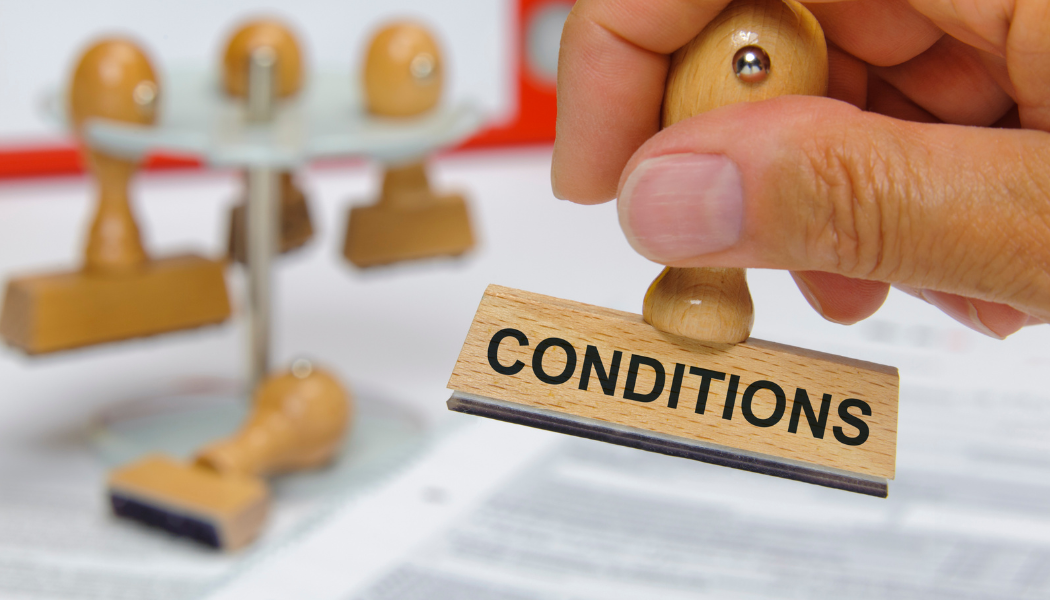What Are Conditional Approvals?
 As you take a look at potential houses for sale, what does it mean if you see a house with a conditional approval? Does that mean you can swoop in and purchase the house with a better offer? Even though a conditional approval doesn’t mean that the sale is guaranteed to go through, it does mean that an agreement is in place.
As you take a look at potential houses for sale, what does it mean if you see a house with a conditional approval? Does that mean you can swoop in and purchase the house with a better offer? Even though a conditional approval doesn’t mean that the sale is guaranteed to go through, it does mean that an agreement is in place.
An Overview Of A Conditional Approval
A conditional approval is an informal acknowledgement that an agreement is in place between a buyer and the lender; however, the lender typically has to collect additional financial information to show that the house is a solid buy. If this process falls through, the house may go back on the market.
For example, the lender might require an appraisal before financing the house. If the appraisal comes in too low, then the buyer might have to bring additional cash to the table. Otherwise, the lender might refuse to finance the house, meaning that it will go back on the market. Or, the lender might require the buyer to submit additional financial information to show they can afford the home. If they cannot do so, the financing process might fall through.
Is A Conditional Approval The Same As A Pre-Approval?
Even though the terms are similar, they are not the same. A conditional approval is not the same as a pre-approval. The pre-approval process takes place very early in the mortgage application process. The pre-approval process is important because it gives the seller some confidence that the buyer can afford the house; however, a conditional approval process is more formal and takes place much further along in the application process.
What Is Required For A Lender’s Conditional Approval?
The conditional approval is only granted after the applicant has submitted an offer on a property. Some of the documents that the buyer might have to submit include financial statements, income statements, tax returns, explanations of negative credit report items, and evidence of any debt or liabilities.
Once all this information is collected, the lender will decide whether to grant the buyer conditional approval. This could help the buyer lock in his or her agreement before proceeding with the other steps in the mortgage application process.
 Buying a home is a dream that many people want to make come true. At the same time, many people dream of buying a second home. Perhaps you are looking for a rental property. Maybe you are looking for a vacation home. Regardless, you might be wondering how you can come up with the necessary cash to finance this dream. You might even be thinking about tapping into the equity in your current home to make that happen. It could be your down payment for your second house, but what do you need to know?
Buying a home is a dream that many people want to make come true. At the same time, many people dream of buying a second home. Perhaps you are looking for a rental property. Maybe you are looking for a vacation home. Regardless, you might be wondering how you can come up with the necessary cash to finance this dream. You might even be thinking about tapping into the equity in your current home to make that happen. It could be your down payment for your second house, but what do you need to know? If you plan on retiring soon, you are probably looking at a few options that can get you over the hump. You are probably excited to start a new phase of life. With a record number of people closing in on their retirement age, many are starting to assess their resources to make sure they have enough money to last them for the rest of their lives. If you already own a home, you might be able to tap into your home equity to help you fuel your retirement.
If you plan on retiring soon, you are probably looking at a few options that can get you over the hump. You are probably excited to start a new phase of life. With a record number of people closing in on their retirement age, many are starting to assess their resources to make sure they have enough money to last them for the rest of their lives. If you already own a home, you might be able to tap into your home equity to help you fuel your retirement.